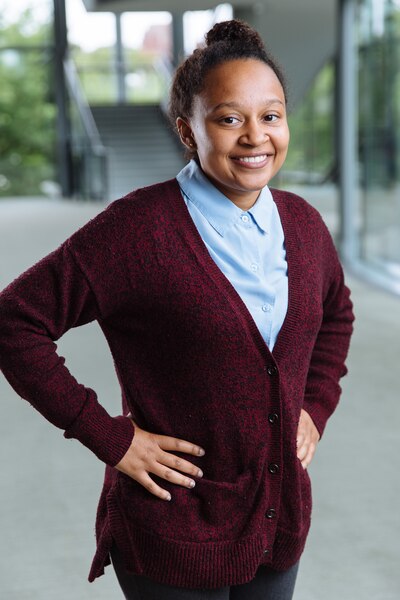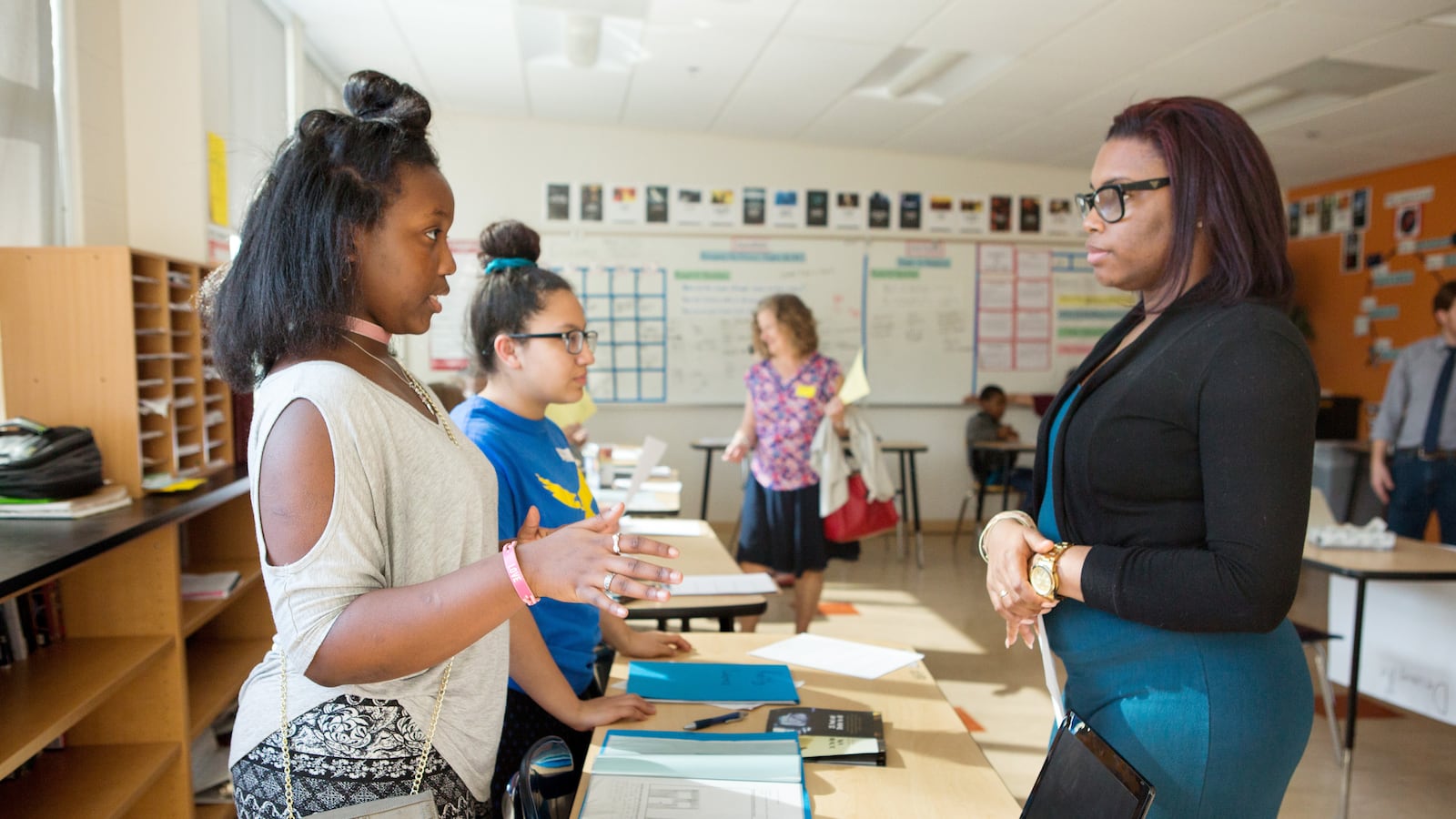Each fall and spring, families and schools across the country take part in “parent-teacher” conferences. Filing in and out of classrooms (or Zoom rooms), educators and parents talk about student progress, participation, and social development. The children and teens who are the subject of the conference are not usually in the room.
At the Newark middle school where I work, though, our students are the ones leading the conference. They are the ones facilitating the conversation about their strengths and areas for growth.

It takes preparation to get there, but I’ve seen it pay off for everyone involved.
To help students to feel confident enough to advocate for themselves, we have them prepare and practice with their peers. Before parents arrive, students complete a reflection activity, and my colleagues and I use a checklist to ensure we make the most out of these rare opportunities to all get together.
The checklist, for example, reminds teachers that they can ask probing questions or direct the student to the agenda but to be careful not to dominate the conversation. We arrange for interpreters if needed. Even the design is intentional — we adjust our seats into seminar-style circles to promote discussion.
I remember one student whom I’ll call Maria. She was a hard worker and strong reader but was often uncomfortable speaking in front of her peers. At her first conference, she put her hands over her face, too nervous to share.
Through patience, practice in class, and the support of her family, her conference the next year looked completely different. She was able to present, her shoulders back and head held high as she discussed her progress and how she wanted to be pushed not just academically but also socially.
At traditional parent-teacher conferences, students may worry about being misrepresented, and parents and guardians might feel surprised and overwhelmed when a teacher expresses that their child is struggling. It also places a strain on teachers who have large class sizes.
It takes a lot of maturity to express your growth and areas for improvement, but I see a genuine effort from all of my students.
Empowering students to lead these discussions lessens the emotional and mental burden on educators. Students have the opportunity to reflect on the skills they learned, their accomplishments to be proud of, what they can work on during the next quarter, and how those goals align with our school’s values: bravery, ownership, and leadership. Families can also trust that if their student identifies they are struggling with completing math homework and assignments on time, it is true. From there, teachers, parents, and students can work together to create action plans.
Of course, it still takes work and an understanding of the students and their families. I know what classes my students are excelling in and if they are having trouble with behavior in a specific class or homework in another. I let the students lead, but I may ask probing questions or direct the student to the agenda. And I help the student if the parent is talking too much, redirecting the conversation if someone begins to get upset.
After the meeting, students send thank you notes to their guardians who attended the event. It takes a lot of maturity to express your growth and areas for improvement, but I see a genuine effort from all of my students.
Since moving to student-led conferences more than five years ago, we have noticed a subtle but important shift. Students are learning public speaking skills. They are learning to advocate for themselves and to manage their time while speaking. And we see parents making a real effort to attend.
For schools looking for a way to improve on their own conferences, shifting to a student-led model is worth considering. For families wondering how to connect the dots between school and home, ask your child’s school about student-led conferences. Some of the best innovations in education are low-tech and right in front of us.
Lauren Whidbee is a successor school leader at KIPP BOLD Academy in Newark, where she has worked since the school was founded in 2015. She started her career as a Teach for America Corps member in Baltimore. Whidbee is a proud alumna of the University of Pennsylvania, and she earned her master’s degree in education at Johns Hopkins University.



